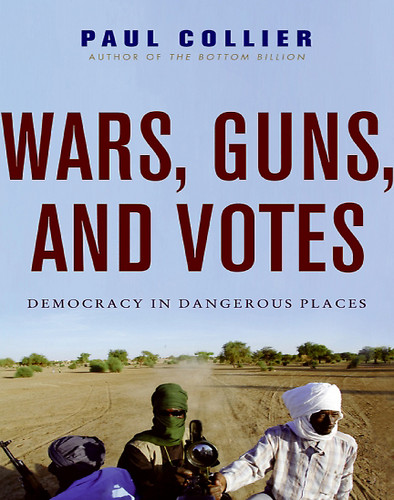
“Democracy has not yet produced accountable and therefore legitimate government,” writes Paul Collier in his book Wars, Guns and Votes: Democracy in Dangerous Places (2009).
NewsDay Analysis
The book critiques African electoral systems including Zimbabwe, exposing how leaders with dictatorial tendencies in the countries he describes as the “bottom billion” have managed to cling to power despite holding elections, which are one of the tenets of democracy.
Collier says while powerful bodies like the European Union, African Union, the Commonwealth, The Southern African Development Community (Sadc), Economic Community Of West African States (Ecowas) and others have prescribed rules to be followed in conducting democratic elections through signing different protocols, violence remains a problem, civil wars, economic hardships and other confusion.
This happens despite that those international and regional bodies would have endorsed the elections as free and fair.
He exposes how incumbents of the bottom billion classes like Zimbabwe, Kenya, Zambia, Nigeria and others had “learnt how to win elections”.
Most of the nefarious means described include vote rigging, using money to buy votes, tactful appointment of finance ministers who later bankroll election campaigns, use of wars and guns, intimidation and others to discourage voters to take part in the process of elections.
Zimbabwean President, Robert Mugabe, former Zambian President, Kenneth Kaunda, former Nigerian President, Olusugun Obasanjo and other presidents cited in the book are portrayed as fearing to lose their hold on power, and holding “no holds barred” elections where it is often a do-or-die issue.
- Chamisa under fire over US$120K donation
- Mavhunga puts DeMbare into Chibuku quarterfinals
- Pension funds bet on Cabora Bassa oilfields
- Councils defy govt fire tender directive
Keep Reading
Kaunda is portrayed as having been shocked that he had actually lost an election after ruling Zambia for decades.
Unlike Zimbabwe’s President Mugabe, Kaunda and other presidents like Obasanjo were, however, clever enough to realise early that it was time to go as there was life after the presidency.
“By the mid-1990s President Mugabe had followed the fashion, adopting a constitution in which there were multiparty elections and term limits, confident that by the time the limit was due to bind they could change the constitution by one means or another. And so term limits turned into time bombs.”
Although this was viewed with disgust by all nations when he decided to go on a one-man raceafter a spate of violent campaigns, Mugabe still managed to force his legitimacy on Zimbabweans after Sadc negotiated with the political parties involved to form a coalition government.
It is under such background that Collier questions if elections can really usher in democracy. If the leaders in the “bottom billion” countries can force their legitimacy, then how democratic is the electoral process? Most countries are left impoverished after elections due to violent struggle.











